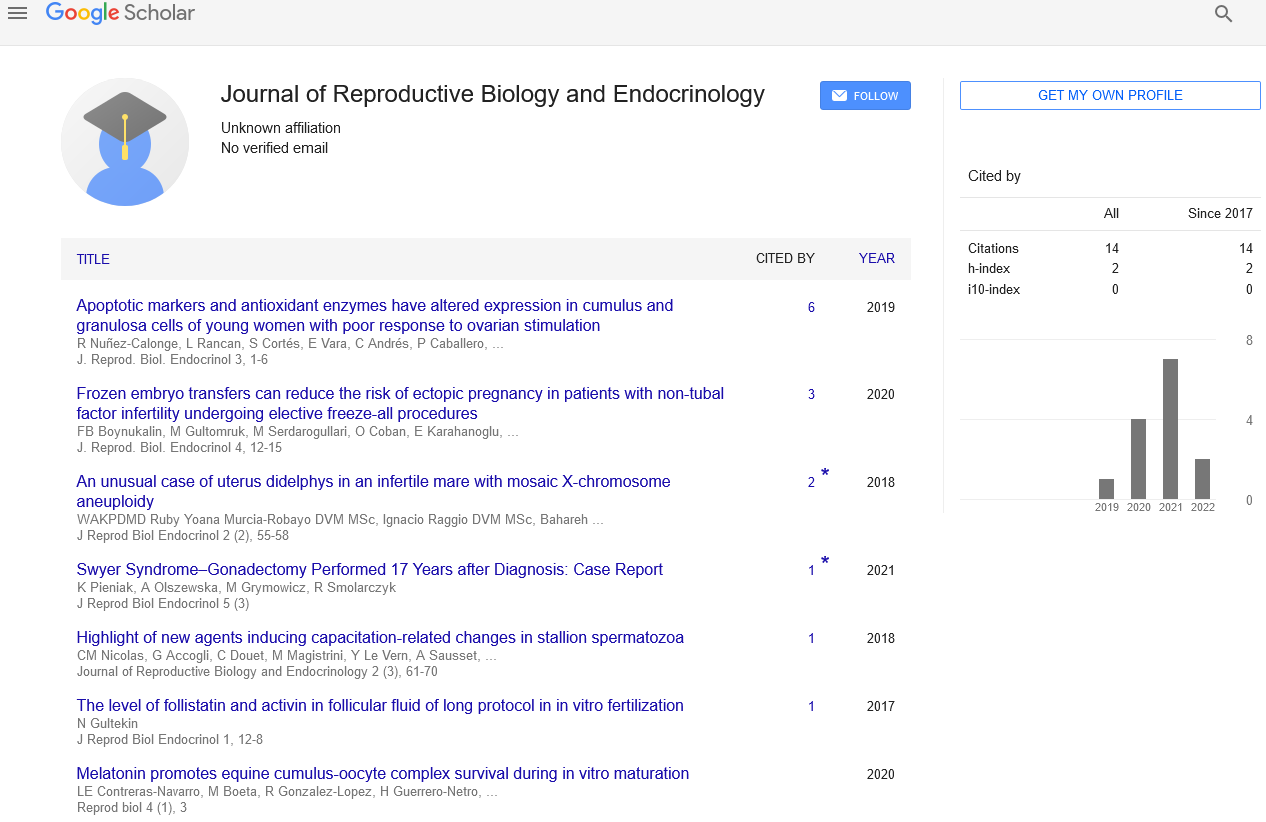
Sign up for email alert when new content gets added: Sign up
Abstract
Mu and delta opioid receptors inhibit the acrosome reaction by the modulation of calcium channels in human spermatozoa
Author(s): Itziar Urizar-Arenaza*, Iraia Munoa-Hoyos, Belen Gomez-Gimenez, Marta Gianzo, Nerea Subiran and Roberto MatorrasBackground: Opioids exert their effect by binding to mu, delta and kappa opioid receptors in human spermatozoa. As it is known, the three receptors are involved in the regulation of sperm motility. Recently we have described the involvement of the kappa opioid receptor in the inhibition of the sperm motility and acrosome reaction by blocking the calcium channels and producing phosphorylation changes in sperm specific proteins. However, the role of mu and delta in the human sperm capacitation and acrosome reaction, as well the signaling pathways underlying them are largely understood.
Methods: 100 human seminal samples were obtained from Cruces university hospital. Samples were isolated and capacitated by swim up. Sperm cells were treated with morphine (selective Mu opioid receptor agonist) and DPDPE (selective delta-opioid receptor agonist) for 60 minutes. Moreover, both agonists were co-incubated for 60 minutes with different inhibitors of main proteins from the calcium and MAPK signaling pathways (U73122: Phospholipase C inhibitor, mibefradil: A calcium channel activator, NNC55-0395: Catsper specific inhibitor; IBMX: Phosphodiesterases inhibitor, BARK1: GRK-2 inhibitor). Immuno blotting studies were conducted to evaluate capacitation using the anti-phosphotyrosine antibody and the results were analyzed by densitometry. Acrosome reaction was measured by flow cytometer using the FITC-anti-CD46 antibody. The statistical analysis was performed using the SPSS Statistics 22 program.
Results: Morphine and DPDPE did not change the phosphotyrosine levels in human spermatozoa following 1 hour stimulation. However, both agonists inhibited the human sperm acrosome reaction blocking the calcium channels. Morphine and DPDPE were able to blunt the acrosome reaction induced by mibefradil (p<0.05). The inhibition of the catsper calcium channel and the phospholipase C by NNC55-0395 and U73122, respectively had effect on human sperm acrosome reaction, and the agonists had no statistically significant synergic effects.
Conclusion: The Mu and delta opioid receptors participate in the inhibition of acrosome reaction modulating the calcium channels in human spermatozoa. This supports the idea that opioid system could be used as a therapeutic target in the finding of new male contraceptives.
Full-Text | PDF




